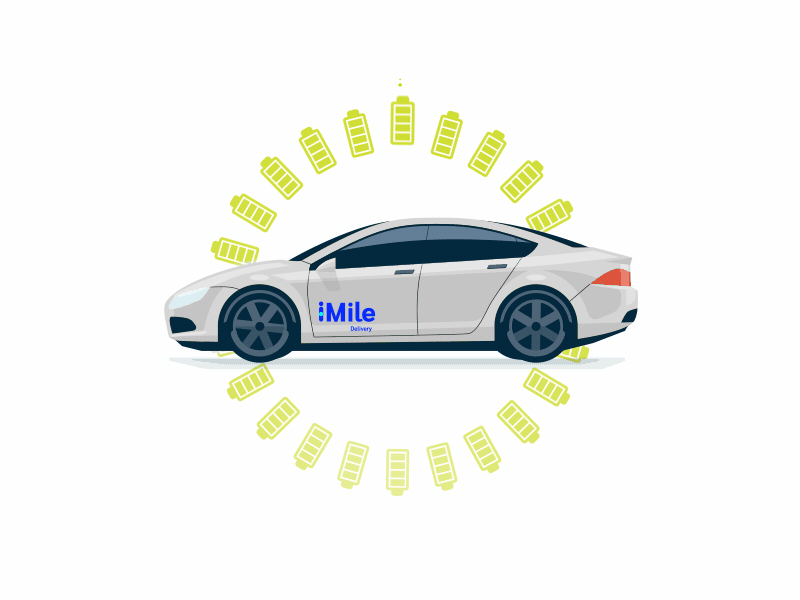Greening the Journey: The Future of Eco-Friendly Transportation in Logistics
2024-06-20
In a bustling metropolis where the hum of delivery trucks and the whirr of drones filled the air, an unseen revolution was quietly taking shape. The world of logistics, the backbone of global commerce, was undergoing a green transformation, paving the way for a sustainable future. This shift towards eco-friendly transportation is not just a trend but a necessity driven by environmental imperatives and technological advancements. Let’s embark on a journey through this transformative landscape, exploring how the logistics industry is embracing green innovations and what it means for our planet.
The Imperative of Sustainability
Picture this: it's a typical day in a sprawling urban city. Trucks line up at distribution centers, their engines idling, releasing plumes of exhaust into the already smog-laden air. This scenario, while commonplace, is a stark reminder of the environmental impact of traditional logistics. The transportation sector is one of the largest contributors to greenhouse gas emissions, accounting for about 14% of the global total. With the planet grappling with climate change, the need for sustainable solutions has never been more pressing.
Enter eco-friendly transportation—a beacon of hope in the quest to reduce carbon footprints. Companies around the world are recognizing that sustainable logistics is not just about corporate social responsibility but also about staying competitive in a market increasingly driven by eco-conscious consumers.
Electrifying the Fleet: The Rise of Electric Vehicles
Imagine a fleet of sleek, silent electric delivery vans gliding through city streets, their only emission being the gentle hum of their engines. This is not a scene from a sci-fi movie but a burgeoning reality. Electric vehicles (EVs) are at the forefront of the green logistics movement. Giants like Amazon and UPS are already investing heavily in electric delivery vans, while startups are developing innovative EV solutions tailored for logistics.

The benefits are manifold: zero tailpipe emissions, reduced noise pollution, and lower operating costs in the long run. With advancements in battery technology, the range anxiety that once plagued EV adoption is diminishing, making electric trucks and vans a viable option for long-haul deliveries as well.
The Hydrogen Highway: Fuel Cells in Logistics
As the sun rises over a new day, hydrogen fuel cell trucks roll out of logistics hubs, ready to embark on cross-country journeys. Hydrogen, often dubbed the fuel of the future, offers a compelling alternative to traditional diesel engines. Fuel cell vehicles (FCVs) generate electricity through a chemical reaction between hydrogen and oxygen, producing only water vapor as a byproduct.
Companies like Toyota and Nikola Motors are pioneering hydrogen-powered trucks, promising longer ranges and faster refueling times compared to their battery-electric counterparts. This technology holds immense potential, especially for heavy-duty logistics operations that require extended range and quick turnaround times. High above the cityscape, drones buzz like mechanical bees, swiftly delivering packages to hard-to-reach areas. On the ground, autonomous delivery robots navigate busy sidewalks, bringing parcels right to customers’ doorsteps. These futuristic visions are rapidly becoming part of the logistics fabric, driven by the need for efficiency and sustainability. Drones, powered by electric batteries, offer a green alternative for last-mile deliveries, significantly cutting down on emissions. Autonomous vehicles, equipped with advanced AI and navigation systems, promise to reduce the carbon footprint of logistics by optimizing routes and driving patterns, thus lowering fuel consumption. As the logistical web extends, it's not just the vehicles that are going green. Warehouses are transforming into eco-friendly hubs, utilizing renewable energy sources like solar and wind power. Energy-efficient lighting, sustainable building materials, and smart temperature control systems are becoming standard features. Furthermore, the development of green infrastructure, such as charging stations for EVs and hydrogen refuelling stations, is crucial in supporting the transition to sustainable transportation. Governments and private enterprises are investing heavily in this infrastructure, ensuring that the green logistics network is robust and reliable. A Collaborative Effort: Partnerships and Innovations The journey towards eco-friendly transportation in logistics is a collaborative one. Partnerships between tech companies, logistics providers, and government bodies are fostering innovations and accelerating the adoption of green technologies. As the sun sets on our story, it's clear that the future of transportation in logistics is green. The shift towards eco-friendly solutions is not just an environmental necessity but a smart business strategy. By embracing electric and hydrogen-powered vehicles, drones, autonomous delivery systems, and sustainable infrastructure, the logistics industry is paving the way for a cleaner, greener future. This transformation, while challenging, is filled with opportunities for innovation and growth. As consumers, businesses, and governments come together to support sustainable logistics, we are not just reducing emissions but also ensuring a healthier planet for future generations. The journey is long, but the destination—a world where logistics is synonymous with sustainability—is within reach. Let's embrace this green revolution and drive towards a brighter, more sustainable future.The Sky's the Limit: Drones and Autonomous Vehicles
Beyond Vehicles: Green Warehousing and Infrastructure

The Road Ahead
